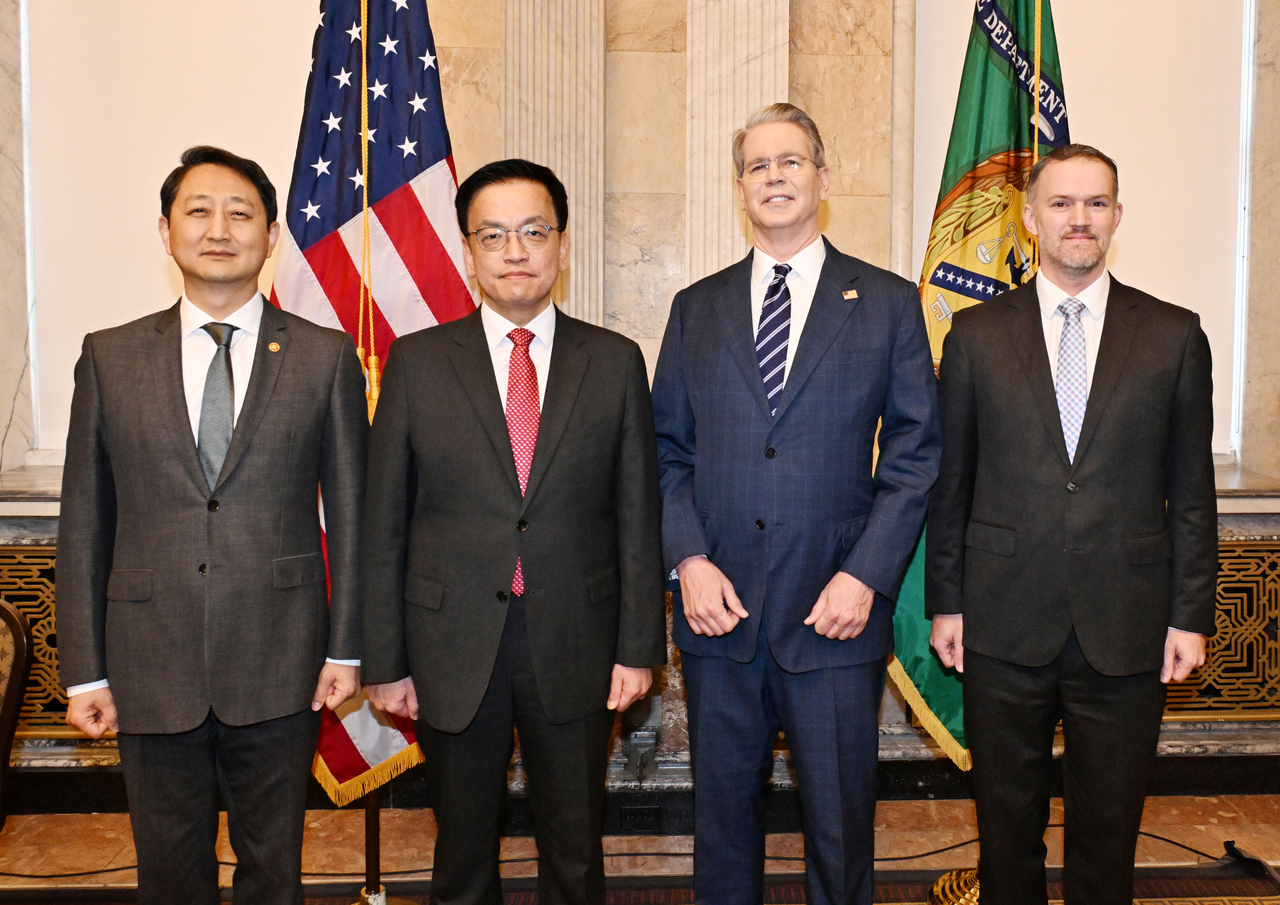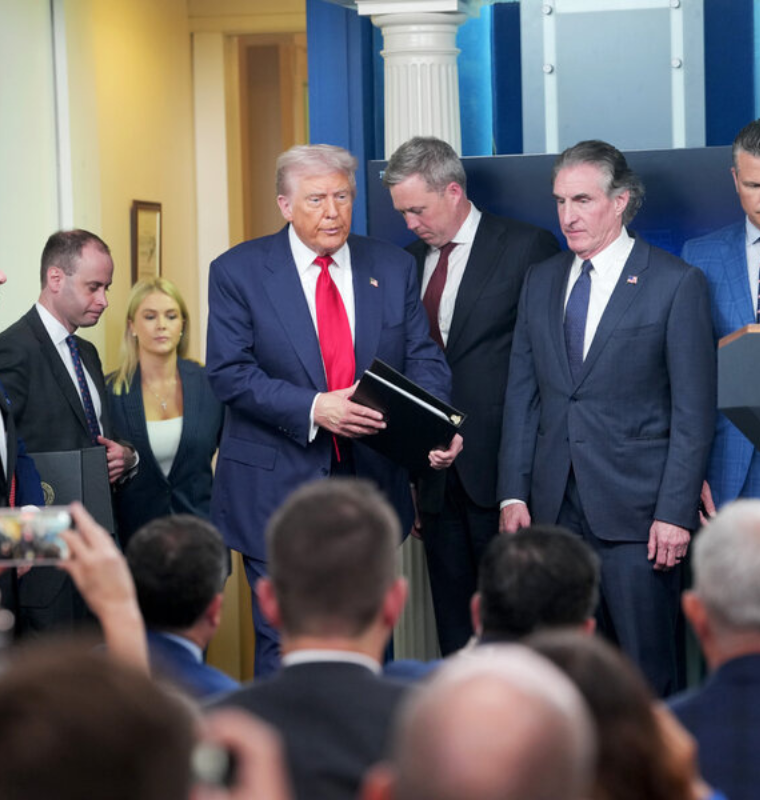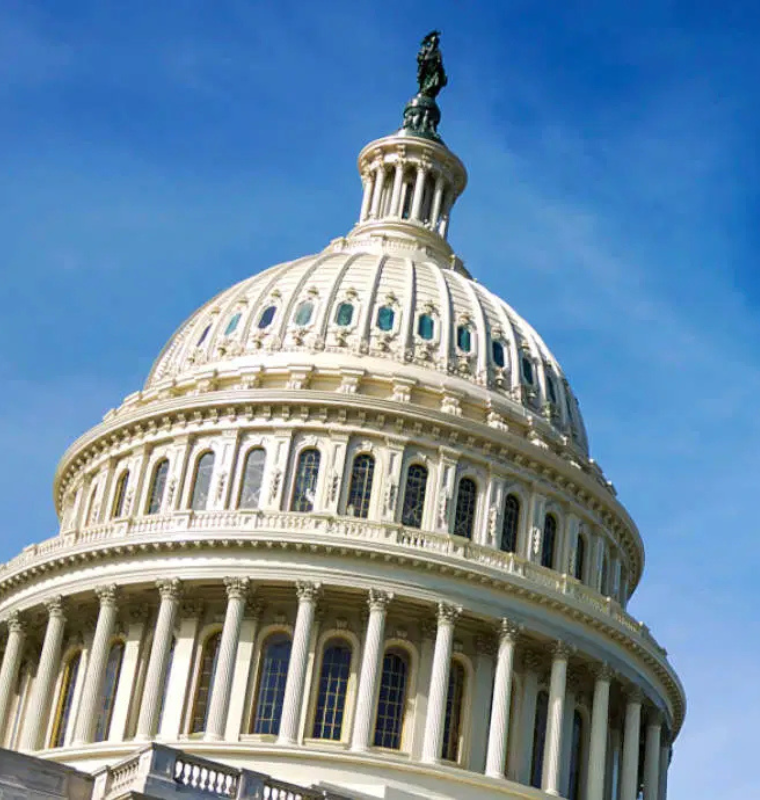South Korea’s Finance and Trade Chiefs to Meet U.S. Counterparts for High-Stakes Tariff Talks
South Korea’s Finance and Trade Chiefs to Meet U.S. Counterparts for High-Stakes Tariff Talks
By
David Goldfarb
Last updated:
July 22, 2025
First Published:
August 6, 2025

Seoul and Washington Set for Crucial Trade Negotiations
In a pivotal moment for U.S.-South Korea trade relations, South Korea’s newly appointed Finance Minister Koo Yun-cheol and Trade Minister Yeo Han-koo will meet with U.S. Treasury Secretary Scott Bessent and U.S. Trade Representative Jamieson Greer this Friday in Washington. The 2+2 dialogue is aimed at addressing escalating tensions over U.S. tariffs, just days before the August 1 deadline set by President Donald Trump.
The high-level talks are being held at the request of U.S. officials, according to Minister Koo, who spoke with reporters after a cabinet-level economic policy meeting on Tuesday. Koo, who assumed his position only a day earlier, now faces the critical task of steering South Korea through a volatile trade environment shaped by Trump's aggressive tariff strategy.
A New Administration Navigates Global Trade Pressures
These talks mark the first major international engagement by South Korea's new economic leadership under President Lee Jae-myung, who assumed office on June 4 following a snap election. The election came after the ousting of the previous administration, which was embroiled in controversy over plans to declare martial law—a political scandal that delayed South Korea’s formal response to U.S. tariffs.
The new team includes Industry Minister Kim Jung-kwan, who has stated that negotiations with the U.S. are in a “critical phase”, with a variety of potential outcomes still on the table. Kim pledged that South Korea would undertake an all-out effort to conclude talks before the August 1 deadline, when retaliatory tariffs could take effect.
What’s at Stake: U.S. Tariffs and Global Trade Realignment
President Trump’s tariff strategy has targeted a wide range of countries, including key allies such as South Korea, Japan, and Germany, in a bid to reduce what he calls “unfair trade imbalances.” The proposed tariffs, which could be as high as 40% on certain goods, are part of a broader effort to force new trade agreements more favorable to U.S. industries.
South Korea’s economy is heavily reliant on exports, with the U.S. being its second-largest trading partner. Any significant disruption to trade could impact sectors ranging from semiconductors and steel to automotive manufacturing.
South Korean officials have emphasized a pragmatic and strategic approach, though they have yet to confirm whether they will ask for an extension of the looming deadline.
“We’ve had discussions from the perspective of national interest and pragmatism, and we’ll do our best to prepare a meticulous strategy until we’re leaving,” Koo said when pressed on the issue.
Regional Dynamics: Japan Also in the Mix
South Korea is not the only nation racing to beat the August deadline. Japan’s top tariff negotiator Ryosei Akazawa also announced plans to travel to Washington this week to hold additional ministerial-level discussions. Tokyo hopes to finalize an agreement with the U.S. before Trump’s tariffs are enforced, adding pressure on the timeline and negotiations.
According to a report from the Japan External Trade Organization (JETRO), Japanese exports to the U.S. exceeded $150 billion in 2023, making the stakes similarly high for Tokyo.
The Road Ahead
As the August 1 deadline approaches, all eyes are on Washington, where a flurry of diplomatic activity is unfolding behind the scenes. South Korea’s new leadership faces a delicate balancing act: navigating Trump’s protectionist trade policies while preserving the country's export-driven economic growth.
With over $135 billion in annual trade between South Korea and the U.S., the outcome of this week’s talks could redefine economic ties for years to come.
Whether the talks lead to breakthrough agreements or merely delay the inevitable tariff escalation remains to be seen. What’s clear is that both sides are under pressure to strike a deal—and the clock is ticking.
Popular articles
Subscribe to unlock premium content
Disney’s Timeless Magic and How the Entertainment Giant Continues to Shape Culture and Innovation

Imran Khan’s Economic Missteps Amid Political Chaos in Pakistan

The Philippines’ Digital Shift How Remittances and BPO Are Fueling Growth

Disney’s Timeless Magic and How the Entertainment Giant Continues to Shape Culture and Innovation

Imran Khan’s Economic Missteps Amid Political Chaos in Pakistan

Disney’s Timeless Magic and How the Entertainment Giant Continues to Shape Culture and Innovation









